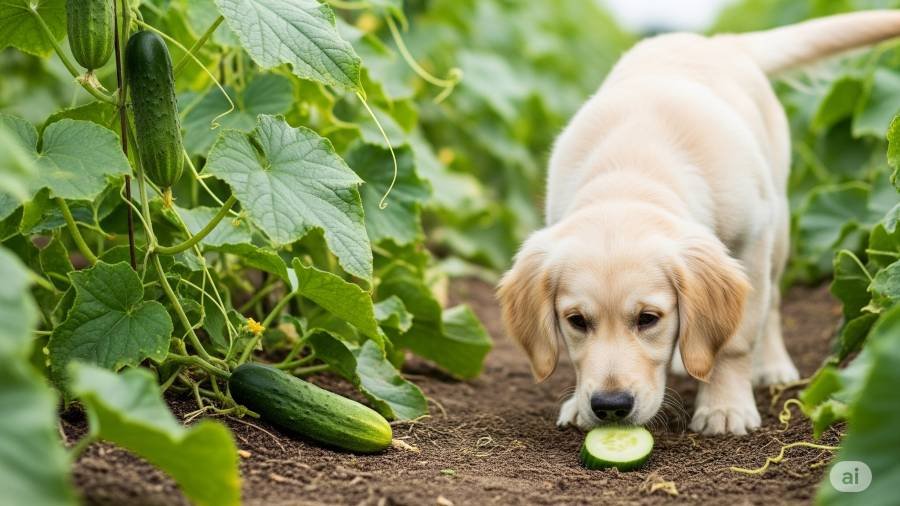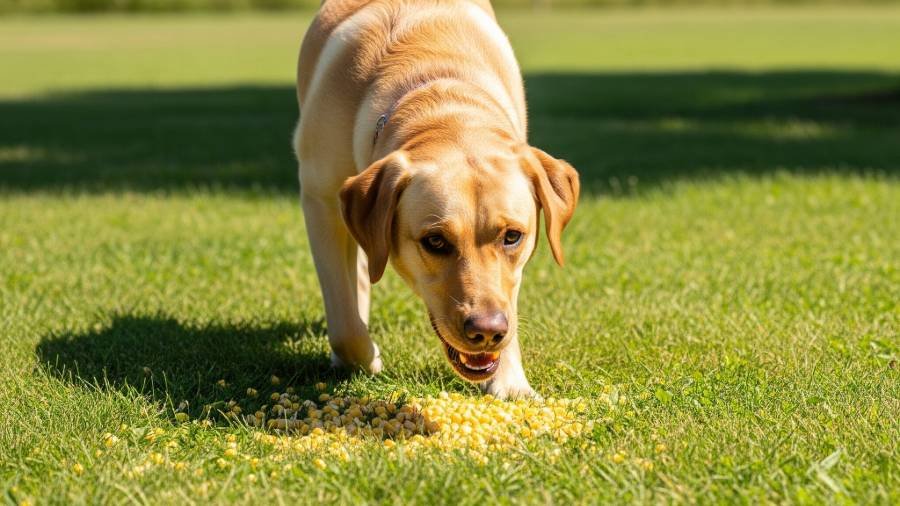Yes, dogs can eat asparagus in small amounts as a safe and healthy addition to their diet, offering various health benefits when prepared correctly.

Potential Benefits of Asparagus for Dogs
When a dog can eat asparagus in moderation, this vegetable provides several advantages that enrich a dog’s diet:
- Rich in Vitamins and Minerals: Asparagus is packed with vitamins A, C, E, and K, plus folate, supporting the immune system and overall vitality.
- High Fiber Content: The fiber aids digestion, promoting a healthy dog’s stomach and regular bowel movements.
- Low-Calorie Treat: With minimal calories, it serves as a guilt-free snack, fitting well within balanced dog food plans.
- Antioxidant Properties: Contains antioxidants that may reduce inflammation, benefiting dogs with joint or age-related issues.
- Hydration Support: The high water content helps keep dogs hydrated, especially during active play or warm weather.
- Natural Chew: The fibrous texture can assist in cleaning a dog’s teeth, supporting oral health naturally.
These health benefits make asparagus good for dogs when you feed your dog asparagus as an occasional treat.
Risks and Dangers of Asparagus for Dogs
While asparagus is safe for dogs to eat, certain risks arise if not handled or fed appropriately:
- Choking Hazard: Whole stalks or large pieces can pose a choking risk, especially for smaller dogs if not cut into manageable portions.
- Digestive Issues: Eating raw asparagus stalks may be difficult for a dog to digest, potentially causing upset stomach or gas.
- Asparagus Fern Toxicity: The fern part of the plant is toxic to dogs, causing vomiting and diarrhea if ingested, though the stalks are safe.
- Allergic Reactions: Though rare, some dogs may experience itching or gastrointestinal distress as an allergic response.
- Pesticide Exposure: Non-organic asparagus may carry residues, requiring thorough washing to avoid potential health concerns.
- Overfeeding Risk: Excessive amounts can lead to nutrient imbalance or mild digestive discomfort due to its fibrous nature.
How to Safely Feed Asparagus to Dogs
To ensure asparagus is a safe treat, follow these guidelines when feeding your dog asparagus:
- Wash Thoroughly: Rinse stalks under water to remove dirt, pesticides, or chemical residues, even if organic, to protect your dog’s health.
- Cooking Asparagus: Steam or boil to soften the stalks, making them easier to chew and digest, though small dogs can eat raw asparagus in tiny amounts if tolerated.
- Cut into Small Pieces: Chop into bite-sized portions to prevent choking hazard and improve digestibility for your furry friend.
- Avoid Seasonings: Serve plain without salt, butter, or oil. Avoid cooking it in butter or oil, which can be harmful to a dog’s stomach.
- Feed in Small Amounts: Offer a small portion (e.g., 1-2 tablespoons for small dogs, up to ¼ cup for large dogs) once or twice a week, keeping treats under 10% of daily caloric intake.
- Avoid the Fern: Ensure only the edible stalks are fed, keeping the asparagus fern away from your dog.
- Monitor Reactions: Introduce gradually and watch for vomiting and diarrhea or allergies over 24-48 hours. Consult a vet if issues arise.
- Consult a Vet: Seek veterinary advice before adding asparagus, especially for dogs with digestive sensitivities or a history of allergies.
Signs of Asparagus-Related Issues
If a dog eats asparagus improperly or reacts poorly, look for these warning signs:
- Vomiting and diarrhea or reduced appetite (possible upset stomach from raw stalks or overeating)
- Difficulty breathing or choking (from whole stalks not cut into small pieces)
- Excessive gas or bloating (common with fibrous vegetables)
- Lethargy or unusual behavior (potential allergic reaction or fern ingestion)
- Excessive scratching or swelling (rare allergic responses)
If these signs appear, stop feeding asparagus and contact a veterinarian immediately. Severe cases may require urgent care.
Expert Opinions
Veterinary experts, including the American Kennel Club (AKC) and the Pet Poison Helpline, confirm that dogs can eat asparagus safely in moderation, highlighting its vitamins and minerals as health benefits for dogs.
They caution against the toxic asparagus fern and overfeeding due to digestive challenges, recommending veterinary consultation for dogs with specific health needs.
For more on safe produce, check can dogs eat broccoli.
Additional Considerations
- Health Conditions: Dogs with gastrointestinal issues or kidney problems should limit asparagus. Consult a vet first.
- Puppies: Young dogs need smaller pieces and monitoring to prevent choking.
- Dog Preferences: Some dogs enjoy the mild flavor of asparagus, while others may not. Adjust based on their response.
- Seasonal Availability: Fresh asparagus peaks in spring, but frozen options are a year-round alternative.
- Storage: Refrigerate fresh stalks and use within a week; blanch and freeze extras for convenience.
- Complementary Role: Asparagus should enhance, not replace, a balanced dog’s diet, serving as a supplement to their primary nutrition.
Safe Treat Alternatives
Instead of relying solely on asparagus, consider these safe-for-dogs treats, tailored to enhance a dog’s diet:
- Spinach: A small portion of steamed spinach offers iron.
- Beans: A teaspoon of plain cooked beans provides protein.
- Papaya: A few bite-size papaya pieces (peeled) supply vitamins.
- Oatmeal: A tablespoon of plain cooked oatmeal supports digestion.
Introduce new treats gradually, monitor for reactions, and consult a vet to ensure a balanced diet.
Dogs can eat asparagus as a safe, nutrient-rich treat when fed in small amounts and prepared by cooking asparagus lightly and cutting into small pieces, offering health benefits like vitamins and minerals, fiber, and support for the immune system and a dog’s stomach.
However, risks such as choking hazard from whole stalks, digestive issues from eating raw asparagus, or toxicity from the asparagus fern require careful preparation and moderation.
Puppies or dogs with health issues like sensitive stomachs should limit intake unless approved by a vet, and a balanced dog food diet should remain the priority.
Always consult a veterinarian before feeding your dog asparagus, and consider safe alternatives for variety.
For more on canine nutrition, explore can dogs eat Brussels sprouts or what vegetables can dogs eat.
For additional questions about what dogs can eat or dietary concerns, feel free to ask!





